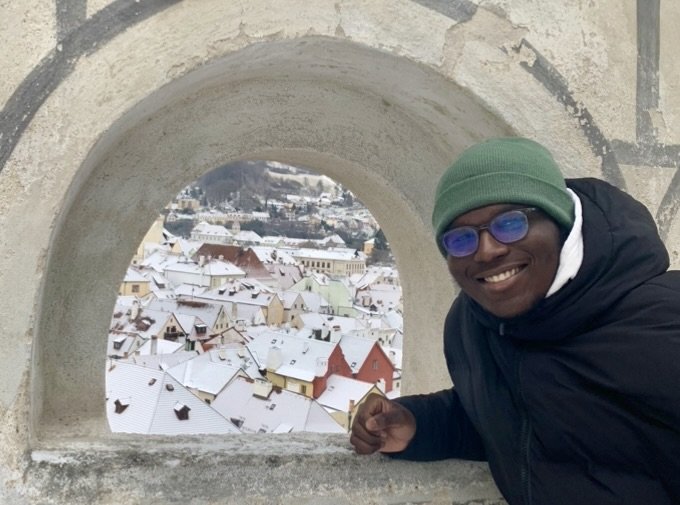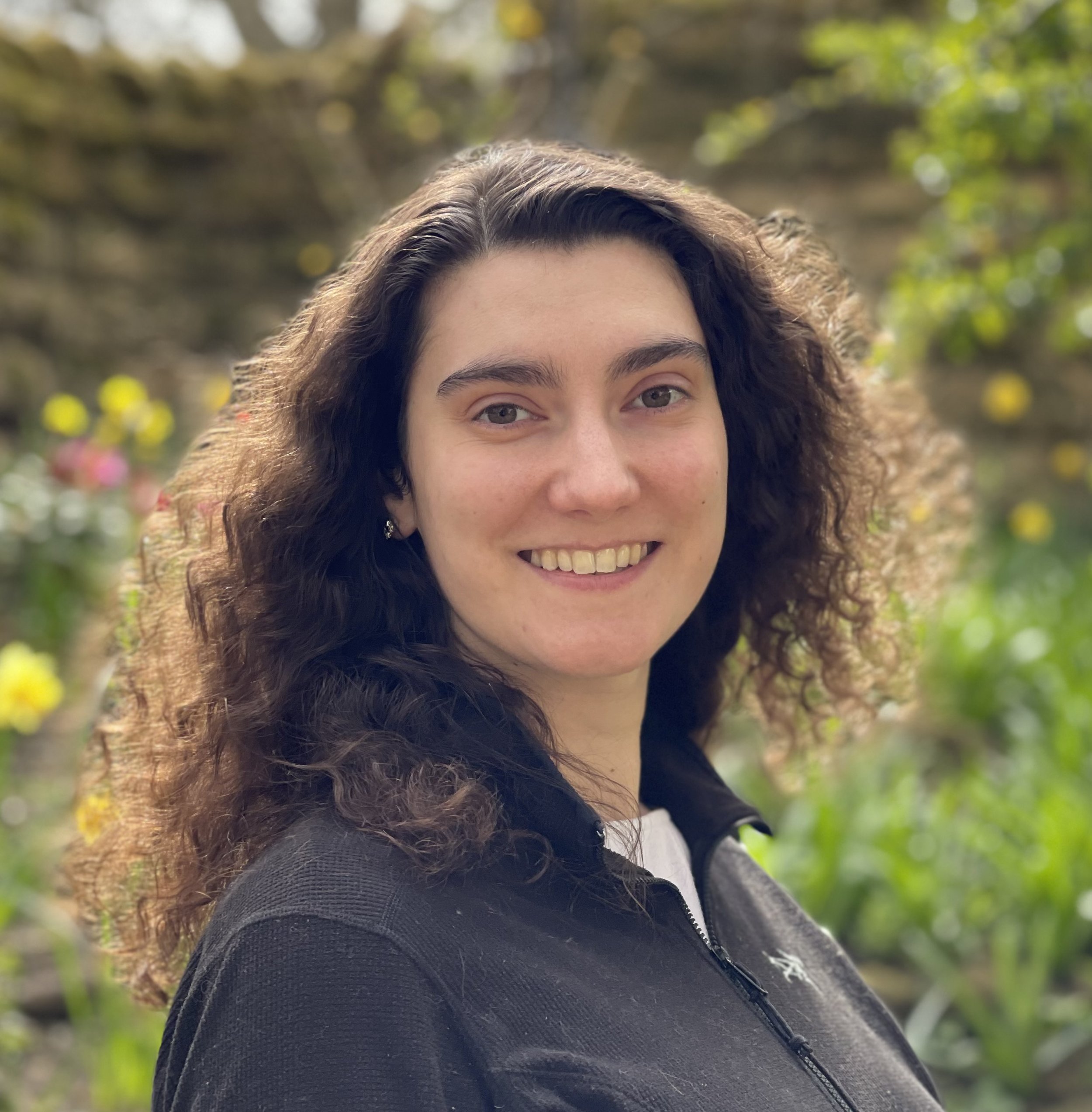I am absolutely thrilled to be able to devote the lion’s share of my time to discovering how evolution works. I particularly enjoy testing theory with new empricial data, and am increasingly branching out into a diversity of systems across the plant kingdom.
My background is split between the Europe and the US, beginning in the study of Linguistics (BA, Classical Philology [Greek & Latin] and Comparative Literature [German] at Beloit College), followed by Virology (MSc at University of Wisconsin). I then jumped from virus evolution to plant evolution (PhD at Universität Tübingen/Max Planck for Developmental Biology), finally to Evolutionary Genomics (Postdoc and then Group Leader at Harvard University). I have lead a research group since 2015.
Contact me if you are interested in joining our group:
levi.yant [at] slu.se
Levi Yant, Professor of Evolutionary Genomics
Rhianah Sandean, MSc Bioinformatics, PhD student & ERC-CZ Reserach Associate
Dr. Stella Huynh, ERC-CZ Postoc
I am interested in species evolution and adaptation. I have worked on allopolyploid wild wheats (PhD, University of Neuchâtel, Switzerland), bird conservation (postdoc, Hong Kong University, China) and plant domestication (postdoc, Institute of Research for Development, Montpellier, France). I have a strong expertise in phylogenomics, population genomics, demographic/ecological modelling and bioinformatics.
By joining the Yant lab in 2024, I finally reconnected with my first love for polyploidy. I will be working on the genomic and molecular changes following WGD in Cochlearia L., Mimulus L. and Arabidopsis L.
Dr. Gabriela Šrámková, ERC-CZ Postoc
I joined Prof. Yant’s lab to work on a project that investigates how adaptation to the challenges of whole genome duplication (WGD) may drive evolutionary success, by examining the role of DNA repair and genomic structural variation in autopolyploids across diverse species. This opportunity is ideal to deepen my understanding of extracting complex genetic data from organisms, while advancing beyond simple nucleotide diversity to more complex DNA structures.
My previous study included the detection of phylogeographic patterns in different (mostly mixed-ploid) Brassicaceae taxa, using various molecular markers and morphological and ecological characteristics of the lineages as well. This topic of interest was a stepping stone to study the role of hybridization based on accumulated knowledge of plants from the native environment. Besides the evolutionary background of this phenomenon, I am generally focused on wet-lab procedures and the production of NGS data for our studies using modern methods (especially T2T assemblies).
I joined the Yant lab after completing my MSc in Bioinformatics at the University of Nottingham, where I developed a strong interest in leveraging large-scale genomic data to address complex evolutionary questions.
I am currently working on finalising a pipeline to produce Telomere-to-telomere genome assemblies using PacBio HiFi reads and Hi-C data. This work is part of a broader project investigating the importance of the mismanagement of core processes like DNA repair during whole genome duplication in polyploid adaptation.
I became fascinated by the interplay of regulatory networks in plant development during my Bachelor’s in Genetics at the University of Leicester and after doing my Master’s in Developmental Biology at the University of Bath, I joined the BBSRC DTP here at the University of Nottingham.
Over the course of evolution, some genera of duckweed have lost the ability to grow roots. My project focuses on understanding and reintroducing a key auxin signaling pathway in root development to duckweed. Alongside the bioinformatics work I do with the Yant group, I work closely with Dr Anthony Bishopp and his group for wet lab approaches.
Claire Smith, BBSRC DTP PhD student
Denzel Renner, MSc Bioinformatics, ERC-CZ Reserach Associate, and incoming SLU PhD student.
My interest in genomics began during my undergraduate dissertation at the University of Nottingham, which inspired me to pursue an MSc in Bioinformatics. During this time, I became increasingly motivated to explore questions in plant evolutionary biology; an area I now have the opportunity to investigate further as a member of the Yant Lab.
In the Yant Lab, my research centers on comparative genomics across different ploidy levels, first in Cardamine amara. I am particularly focused on extending this work to the haplotype level, aiming to understand patterns of haplotype synteny (and lack thereof) at both the gene and structural variant levels.
Laura has been honing phenomenal lab skills, doing particularly challenging high molecular weight DNA preps in several notoriously difficult species. In particuar, she has overcome Cochlearia’s challenges: this species has the most difficult DNA to purify away from swarms of secondary metabolites that clog our Nanopores. Thanks to Laura’s diligence , our long reads are now in fact long, and our data better :)
Laura Cowan: Now Cambridge postgraduate student, Henderson Lab (and Nottingham Graduate)
Silvia has broadly characterized the natural variation for elemental accumulation in wild populations of a broad panel of species from Catalonia in order to study the physiological mechanisms and the genetic basis of adaptive traits. She is currently working in ecological genomics of local adaptation (especially edaphic adaptation) and salt tolerance in Arabidopsis thaliana and wild outcrossing Brassicaceae species.
Dr. Sylvia Busoms-Gonzalez: Now Associate Professor at The University of Barecelona
Dr. Raziyeh Abdilzadeh, Leverhulme Postoc
I started my research on polyploids with the brine shrimp Artemia (Anostraca) during my Master’s degree in Iran. This was a collaboration with Hacettepe University (Turkey). I then continued my study of evolutionary biology at Mashhad University of Iran in collaboration with Gothenburg University (Sweden) on gene flow in birds — mainly the Sylvia curruca complex.
I joined Prof. Yant’s lab to work on a project on preadaptation to challenging environments via polyploidy. As a believer in science without borders, I’ve found the Yant lab to be an amazing place where we can think freely and widely! I really enjoy extending my knowledge to understand genome evolution. In this lovely way, we use field sampling, both wet and dry lab approaches to address evolutionary puzzles!
Kellie Smith, PhD student; Now postdoc at Leeds University
I am fascinated with duckweed as a new model plant species, with scope as sustainable food, feed and fuel. I seek to better understand duckweed evolution and adaptation to different water and light environments. My projects explored the genetic basis behind phenotypic variation and adaptations in duckweed and has involved large-scale collections across the UK of diverse duckweed species.
Dr. Tuomas Hämälä: Now PI, Senior Scientist Natural Resources Finland [Luke]
A Marie Skłodowska-Curie fellow with us from 2021-end 2023, Tuomas studied the impact of whole-genome duplications on genetic and genomic architecture of adaptation, using approaches ranging from modelling to analysis of multi-species genomic data. He is now a Senior Scientist and PI at Natural Resources Institute Finland (Luke) working on plant genomics and crop improvement
Lab Alums:
Dr. Emma Curran, Leverhulme Postoc: now in the Peak District Sheffield Univeristy :)
I'm interested in using long read-based graphical pangenomics to boost population genomic investigations of how natural populations adapt when challenged.
My research so far has addressed the evolution of intraspecific adaptive variation, such as colour pattern variation in stick insects and butterflies, and the emergence of ecotypes in grasses. Here in Nottingham, I'm sticking in the plant world, and exploring how whole genome duplication events can affect the landscape of structural variation in the genome, and the impact that structural variants can have on the adaptability of polyploids.
Dr. Ana C. da Silva
: Now postdoc, Cambridge University
I have worked at the interface of basic and translational research, and I am always eager to learn more. I’ve explored different branches of the Tree of Life: Drosophila (undergrad and MSc in Cell and Molecular Biology – Portugal, exploring molecular basis of cold resistance), Microbes (post-doc & PhD at Nottingham, using phenotypic and genomic approaches to investigate ecology and evolution of polymicrobial chronic wounds) and now Plants (MSc in Bioinformatics and currently post-doc - understanding genome evolution of mating system shifts & genomic and physiological factors underlying salinity tolerance).
Dr. Min Zhou: Now postdoc at Chengdu University
Min has spent the last year with us on a China Scholarship Council grant and plans to return to us next year for her postdoc. While in the group, we initiated a rich collaboration that resulted in a new direction for the lab and two new publications looking at the genomic basis for natural variation in Cadmium tolerance in Chinese wheat land races. Min also discovered strikingly broad natural variation in duckweed accessions for the accumulation of many elements using high-throughput ionomics as part of the Future Food Beacon..
Dr. Sian Marian Bray, top collaborator
Assistant Professor, U. Nottingham
Our collaboration began when Sian joined us for a visit at JIC from Cambridge. She is a structural biologist turned Python Mage, leading genome scanning studies looking at the mechanistic basis of adaptation to genome duplication as well as adaptation to saline soils. Also she is the leader of our pirate-themed scurvey grass project and has collaborated broadly in projects across the group.
Sian is concentrating on running a Masters in Bioinformatics and working on novel GWAS methods, as well as lots of other genomics projects.
Other Lab Alums:
Jeff DaCosta is now an Assistant Professor at Boston College.
Lara Hebberecht-Lopez is now a graduate student at Cambridge University.
Patrick Monnahan is now a Genome Analyst at the University of Minnesota.
Mark Alston is now a Bioinformatician at the Earlham Institute.
Pirita Paajanen is now a Bioinformatician at the John Innes Centre.
Matt Heatley is now a Bioinformatician at the University of Nottingham.
We are a hugely collaborative lab. Here are some of our closest collaborators:
Markus Koch Plant diversity and systematics University of Heidelberg, Germany
Filip Kolář Natural variation, polyploidy Charles University, Prague, Czechia
James Higgins Meiosis University of Leicester
Zhenhua Liu Evolution of gene clusters. Shanghai Jiao Tong University 上海交通大学
Matthew Loose Genomic techniques University of Nottingham, Nottingham, U.K.
Terezie Mandáková Cytogenetics Masaryk University, Brno, Czechia
Roswitha Schmickl Hybridisation and polyploidy Charles University, Prague, Czechia
Todd Michael Baobab & Duckweed genomics Salk Institute USA














